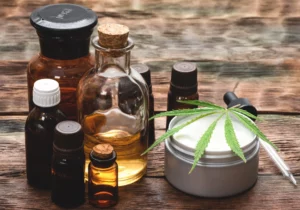The opioid epidemic claims lives and impacts American society in many ways, but recent figures from the Centers for Disease Control (CDC) reveal that the greatest financial stress of opioid misuse and addiction are felt by employers. Lost productivity, workplace accidents and injury are among the costs affecting employers of all kinds when workers use these powerful prescription painkillers.
A growing body of evidence shows that cannabis is a safer and more effective alternative to opioids—one that can save billions by keeping workers on the job. But employers who want to include cannabis in a workplace wellness strategy will need to overcome challenges including legal issues, prevailing myths about cannabis and the reluctance of network doctors to recommend the plant as treatment.
FOLLOW US ON FACEBOOK & INSTAGRAM
How Do Opioids Affect the Workplace?
Even though they’re initially prescribed for legitimate pain conditions, opioids are recommended for short-term use only. In fact, studies suggest that they may not even be particularly effective in the long term. But a majority of doctors generally prescribe them for longer periods, or indefinitely.
Whether prescribed for a condition outside of work or as a result of a workplace injury, opioid misuse can lead to poor productivity, absenteeism and workplace accidents. Employees struggling with addiction and the side effects of opioids miss more work than their peers, and a significant number of people who use opioids while recuperating from a workplace injury never actually return to work at all. That results in higher costs and lower revenues for companies in a variety of sectors.
Many solutions for supporting people with legitimate chronic pain while avoiding the very harmful consequences of taking opioids have been proposed. These include more stringent drug testing, seeking out doctors with a more conservative approach to opioids and providing support for employees struggling with addiction. But both insurers and the CDC have suggested recommending alternative methods of pain management—and for many people, cannabis can be the most effective option. But to make cannabis a viable solution for workers in pain, employers must advocate—and educate.
Challenging the Myths About Cannabis
Cannabis has a fearsome reputation as an illegal substance with no medical applications. For many people, including employers, the idea of using cannabis conjures up images of stoned employees moving through the workday at half speed, dealing drugs on the premises and a host of other undesirable behaviors. Others are doubtful about the medical benefits of marijuana and cannabis’s ability to relieve pain and the symptoms of a wide range of health conditions.
RELATED: THE SCIENCE BEHIND WHY MARIJUANA IS SAFER THAN OPIOIDS
A workplace campaign to promote cannabis as a way out of opioid use needs to be able to address these issues, and that begins with education. Workplace trainings can draw from the growing body of research that shows how cannabis for medical purposes is very different than recreational cannabis use. Many people who use cannabis medically rely on the non-psychoactive compounds in the cannabis plant for pain relief, most famously cannabidiol (CBD).
Employee assistance programs designed to help workers with addiction and other issues could include cannabis as an option to reduce dependence on opioids—or eliminate them altogether. But even if employees learn about medical cannabis, they can still have problems getting access to it.
On the federal level, cannabis is still an illegal substance on the most restrictive Schedule 1 of the Controlled Substances Act. And although many states have legalized cannabis in some form, those laws aren’t consistent—and they don’t apply across state lines. In states where medical cannabis is available, not all health conditions are considered eligible, and not all doctors are willing to recommend it or refer patients to dispensaries.
Managing the Medical Perspective of Cannabis
Some opioid reduction plans proposed by workers’ compensation representatives and workplace safety advisers also recommend that employers either work with doctors to reduce the amount of opioids being prescribed for workplace injuries, or seek out doctors who generally prescribe fewer opioids.
Overall, a large number—76% in one survey—of American doctors are in favor of using cannabis for medical purposes, at least in theory. But many medical professionals still maintain that cannabis is a dangerous substance with limited research supporting its medical benefits.
Some doctors say that prescribing cannabis is risky because it can be difficult to standardize doses, and individual responses can vary widely. Others doubt the medical applications of a substance so popular for recreational use and fear that users could simply substitute one addiction for another. And for some, prescribing opioids is simply easier and more lucrative.
Next Steps if You Think Medical Cannabis Is Right for Your Workplace
- Encourage employees to talk about cannabis with their doctors—and encourage doctors to talk about it with their patients. This can help nudge companies towards considering cannabis as a workable alternative for pain management and a way to reduce the liabilities caused by opioids.
- Present recent research on cannabis as an effective pain reliever as doctors and insurers like hard data. Recent studies show that large numbers of people have been able to reduce their use of opioids with cannabis, or stop using opioids entirely.
- Enlist the support of medical cannabis professionals who can help create programs to introduce cannabis as a workplace treatment for chronic pain—and protocols to safely get employees off opioids and back to work.
Cannabis offers a way out of the opioid epidemic at work—and with the help of medical cannabis experts and solid research, the cannabis alternative can help companies of all kinds reduce the workplace costs of runaway opioid use.
If you’re new to cannabis and want to learn more, take a look at our Cannabis 101 post. HelloMD can help you get your medical marijuana recommendation; it’s private, easy and 100% online.






